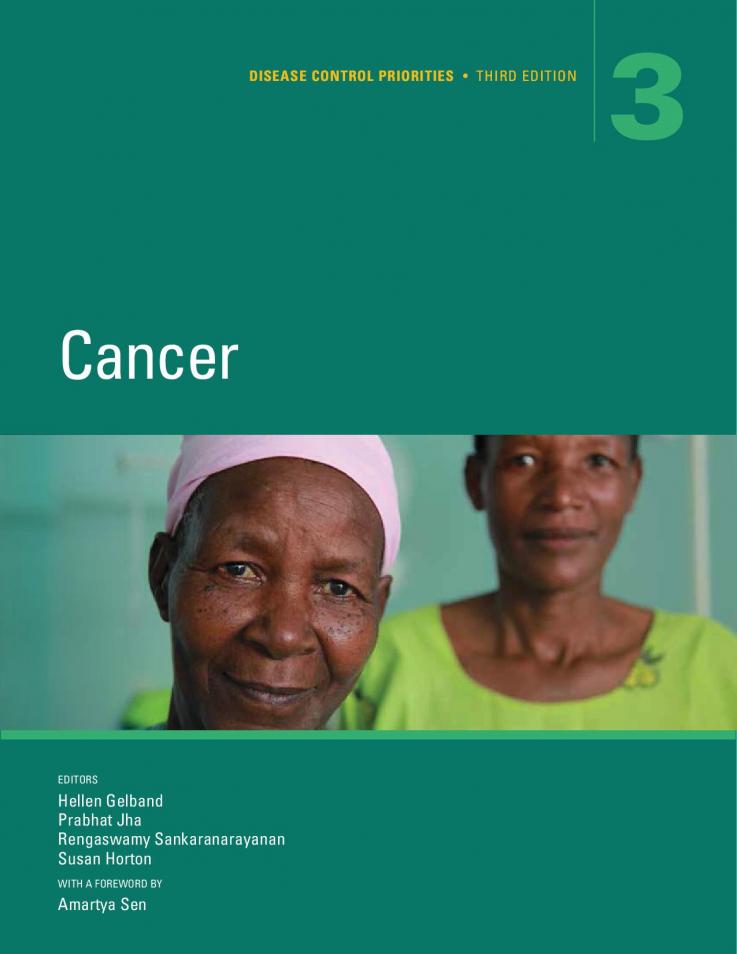
SEATTLE, Washington – The latest Disease Control Priorities 3rd Edition (DCP3) volume on cancer, available today, gathers essential information on effectiveness, cost-effectiveness, feasibility and affordability of a range of interventions to provide evidence-based guidance to decision makers worldwide. It is available online now at www.dcp-3.org/cancer and through the World Bank’s Open Knowledge Repository.
The International Agency for Research on Cancer (IARC) estimates that 3.4m, or 77%, of all premature cancer deaths in 2012 occurred in low- and middle-income countries (LMICs). Cancer, which explores how much of this burden is avertable and the interventions that can have the biggest impact, is the second installment in the DCP3 series published by the World Bank Group. “The cancer burden in LMICs is growing as proportion of total mortality, as deaths from infectious diseases and even other noncommunicable diseases are declining faster than the decline in cancer mortality. Most of the expected increase is in cancer types that we currently do not know how to prevent, so it is critical that the capacity to treat curable cancers be greatly increased and that resources not be squandered on ineffective measures,” says lead editor Hellen Gelband, Associate Director at the Center for Disease Dynamics, Economics & Policy.
Key messages on global cancer:
- Cancer is a poverty issue. Poor people are more likely to die from cancer, and a cancer diagnosis can push households into poverty. Cancer prevention interventions, such as tobacco taxes and HPV vaccinations, are pro-poor, providing relatively larger benefits to low-income households.
- Cancer is a major cause of premature death in LMICs, and its significance will undoubtedly grow as countries experience epidemiological and demographic transitions.
- Excise taxes on tobacco ($1-$150/DALY averted) and hepatitis B vaccination (<$100/DALY averted) are the most cost effective interventions against cancer.
- The DCP3 essential package of cost-effective and feasible interventions would, if fully implemented, cost an additional $20 billion per year, or 3 percent of total public spending on health in LMICs; 2.6 percent in upper-middle-income countries (UMICs); and 5 percent in lower-middle-income countries; but 13 percent in low-income countries (LICs).
- Global initiatives for cancer control in LMICs are needed to lower the costs of key inputs for the essential package, including large-scale commodity purchases; to expand technical assistance; and to promote cancer research.
For an estimated $1.70-$5.70 per capita, low- and middle-income countries can offer the model “essential package” of cancer control interventions, which can be tailored to local conditions. This package includes cost-effective cancer prevention, treatment and palliative care services that go beyond those that are feasible only at the primary care level. The volume also addresses the financial impact that cancer can have on household economies and how this impact varies by family, education, literacy, and income levels.
The strategies and services discussed are meant to provide a foundation upon which low- and middle-income countries can expand their cancer control through the adaptation of such services according to the country’s specific health needs and economic feasibility. Susan Horton, editor and Professor at the University of Waterloo, explains, “Given the anticipated increases in public spending on health, it is estimated that the majority of LMICs will be able to implement a locally customized essential package of services by 2030.”
Cancer is being launched today at the AORTIC 10th International Conference on Cancer in Africa in Marrakesh, Morocco. Editors Hellen Gelband, Susan Horton, and Rengaswamy Sankararanarayanan will be joined by authors Sumit Gupta and Lynette Denny as they present the volume’s main messages and recommendations. Department of Global Health authors include Ben Anderson, Carol Levin, and Theo Vos.
The volume was developed by the Disease Control Priorities Network at the University of Washington’s Department of Global Health and funded by the Bill & Melinda Gates Foundation. The volume is one of nine planned volumes in the DCP3 series that will be published throughout 2015-2016.
For more information, visit www.dcp-3.org/cancer and follow DCP3 on Twitter using @DCPthree
Download a PDF version of the press release.